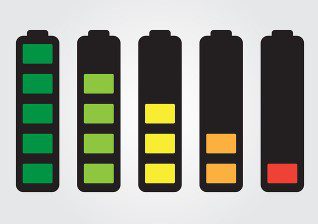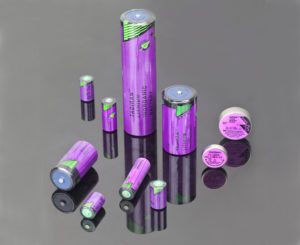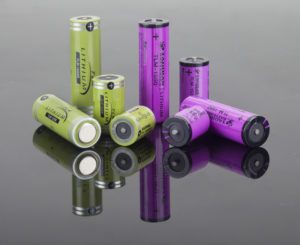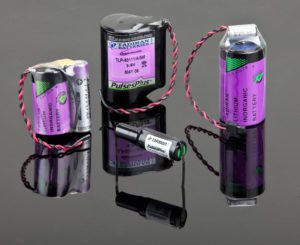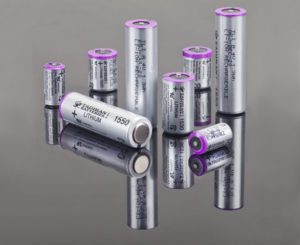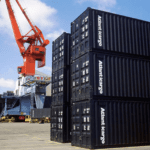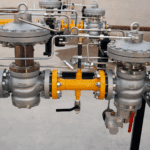Main Industrial Battery Companies On The Market
With advanced technology and green energy sources dominating in the last decade, we’ve got many industrial battery companies. Since battery usage, especially Li-SOCL2 batteries, has increased in many industries, these companies are competing for the market share. Currently, we see a division among lithium-ion and non-lithium-ion battery manufacturers, all looking for their part and relying on different advantages of their products.
For example, the usage of Li-ion batteries is forecasted to increase about 10 times from 2018 to 2030. And that’s why the competition is heated.
So, let’s see who the leading market players are and what they are hoping for.
Industrial Battery Companies Production
Industrial battery products differ a lot from batteries designed for commercial usage. They’re mainly used in mechanical and electrical equipment, battery-powered tools, vehicle industry, medicine, space stations, and others. Therefore, the power, duration, design, and everything else have to be more advanced than consumer products and that’s where industrial battery companies come into play.
Industrial battery factories produce batteries with unique characteristics. It’s a combination of batteries, BMS (battery management systems), and chargers. All this together is an industrial battery.
Now, let’s go a bit deeper. Obviously, a customized battery is the battery body itself, with different chemical elements that determine whether it’s a lithium or a non-lithium battery and whether or not it can be charged. It comes in all sizes and shapes, with different features, such as weather resistance, charging rate, temperature range, etc.
Then we have BMS, an intelligent component responsible for battery management and monitoring. Thanks to BMS, industrial battery companies were able to increase the battery’s efficiency and life span. Some of the BMS’s main functions are:
- Overcharge and discharge protection
- Overheat protection
- Cell monitoring and balancing
- Power gauge
BMS is mainly used in high-capacity Li-ion batteries as well as lithium thionyl chloride ones.
When it comes to chargers, here we come to a bit more specific situation. Industrial battery companies need to pay attention to industrial batteries’ high voltage and capacity. The charger needs to be able to detect the battery’s state and provide the highest quality charging solution at any given moment. Through BMS, the charger can identify the state of the cells and decide on the solution. Of course, this stands for batteries that have the ability to be charged.
Types Of Industrial Battery Companies:
As aforementioned, we have different types of battery suppliers – for lithium-ion based and non-lithium-ion based batteries. The main difference among these two battery types is their usage.
Li-ion Battery
There are several lithium-ion battery types, with the dominating one being lithium cobalt oxide. It offers high energy density, but it’s a bit dangerous, with cobalt oxide being corrosive and non-environmental friendly.
In Japan and China, most li-ion batteries are a mixture of lithium with manganese cobalt oxide, iron phosphate, manganese oxide, nickel oxide, and more. The primary usage of these is in electric vehicle manufacturing since the batteries are safe, costs are lower, and they can be recharged quickly.
Also, li-ion batteries are great backup batteries for power outage situations since they provide high voltage and solid durability. They can be used at home, for basic needs, or as a part of industrial battery backup systems, serving data centers and telecommunications.
Non-Li-ion Battery
Some industrial battery companies have decided to point out the bad sides of li-ion batteries and offer something completely different. So, if you’re looking for a non-li-ion battery, you may find advanced lead-acid batteries, zinc-based batteries, flow batteries, and more.
For now, mostly startups are offering these battery types, but it doesn’t mean the statistics won’t change in the future if more industries see the usage of this battery type.
Industrial Battery Companies – Revenue
Of course, one of the reasons for industrial battery companies to compete is profit. Since we’ve already mentioned that this is an expanding industry, and there’s a lot more potential and growth space, revenue is a significant motive for anyone. Cutting costs with new battery types such as Li-SOCL2 will indeed show its impact in the future.
One of the leading companies when it comes to battery production is Tadiran Batteries. Implementing new technologies while maintaining high-quality products, this company is seen to be setting future trends.
FAQ
Who is the largest manufacturer of EV batteries?
Currently, China is a leader in industrial battery production, with most electric car makers being based in this particular country.
Which industries use the most batteries?
The biggest battery power consumers are energy storage systems, machinery, marine equipment, industrial automation systems, and more.
Playing the article for the visually impaired


